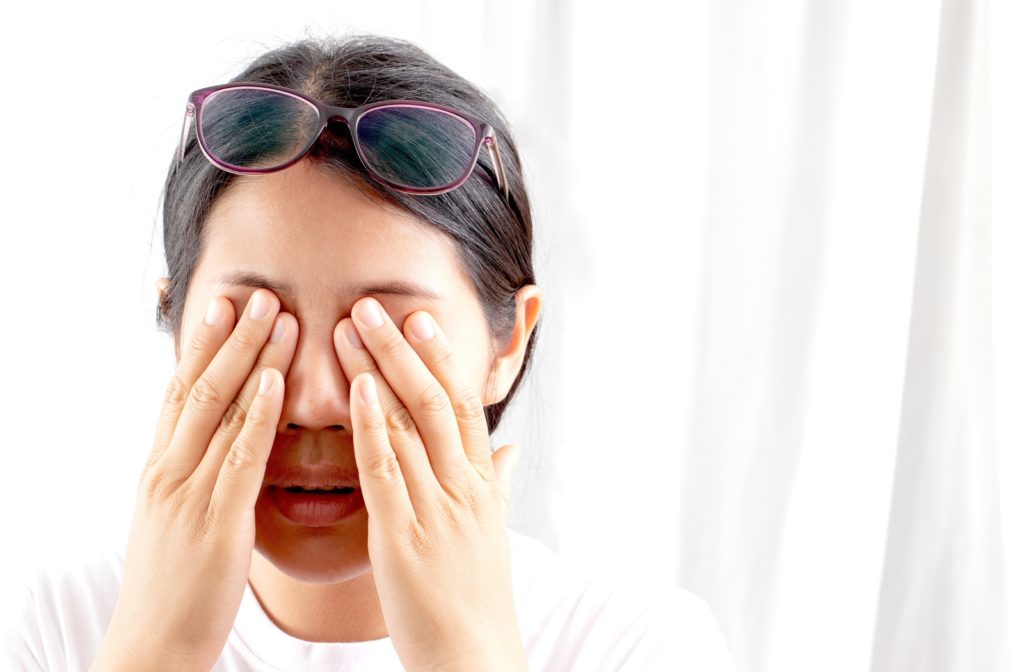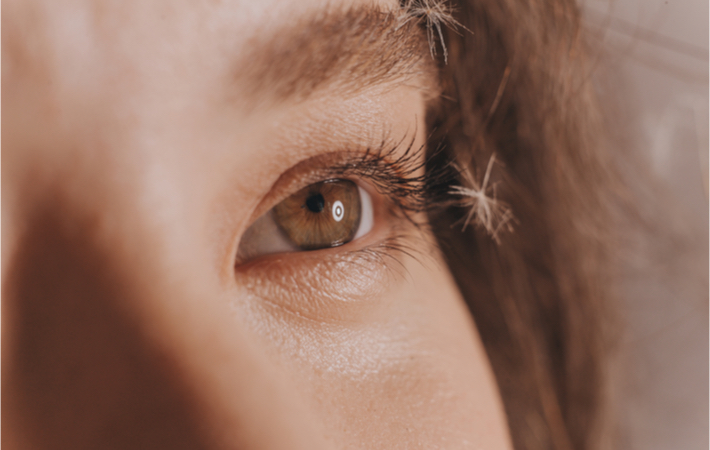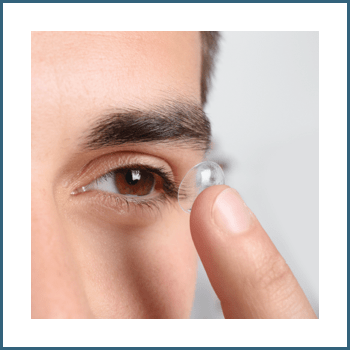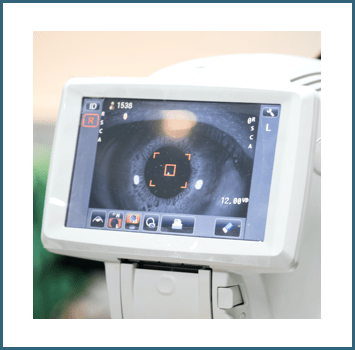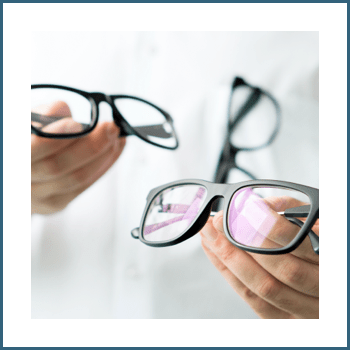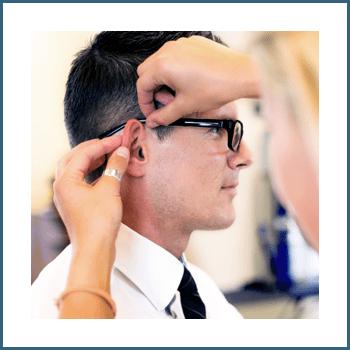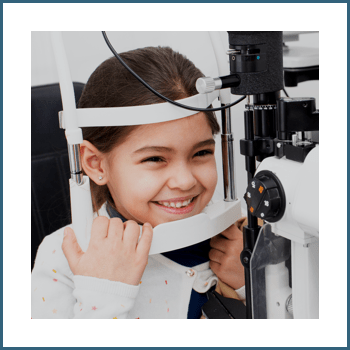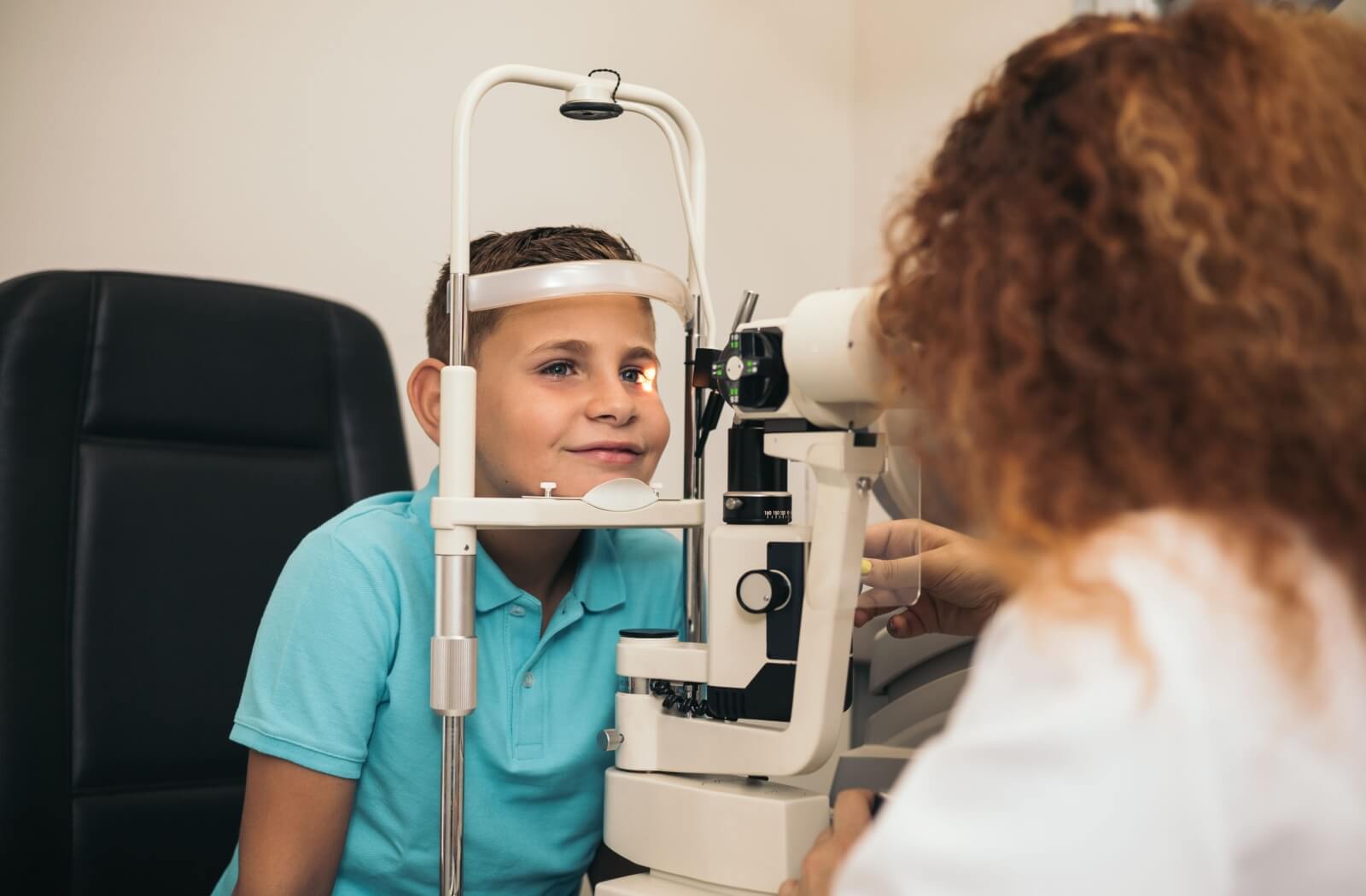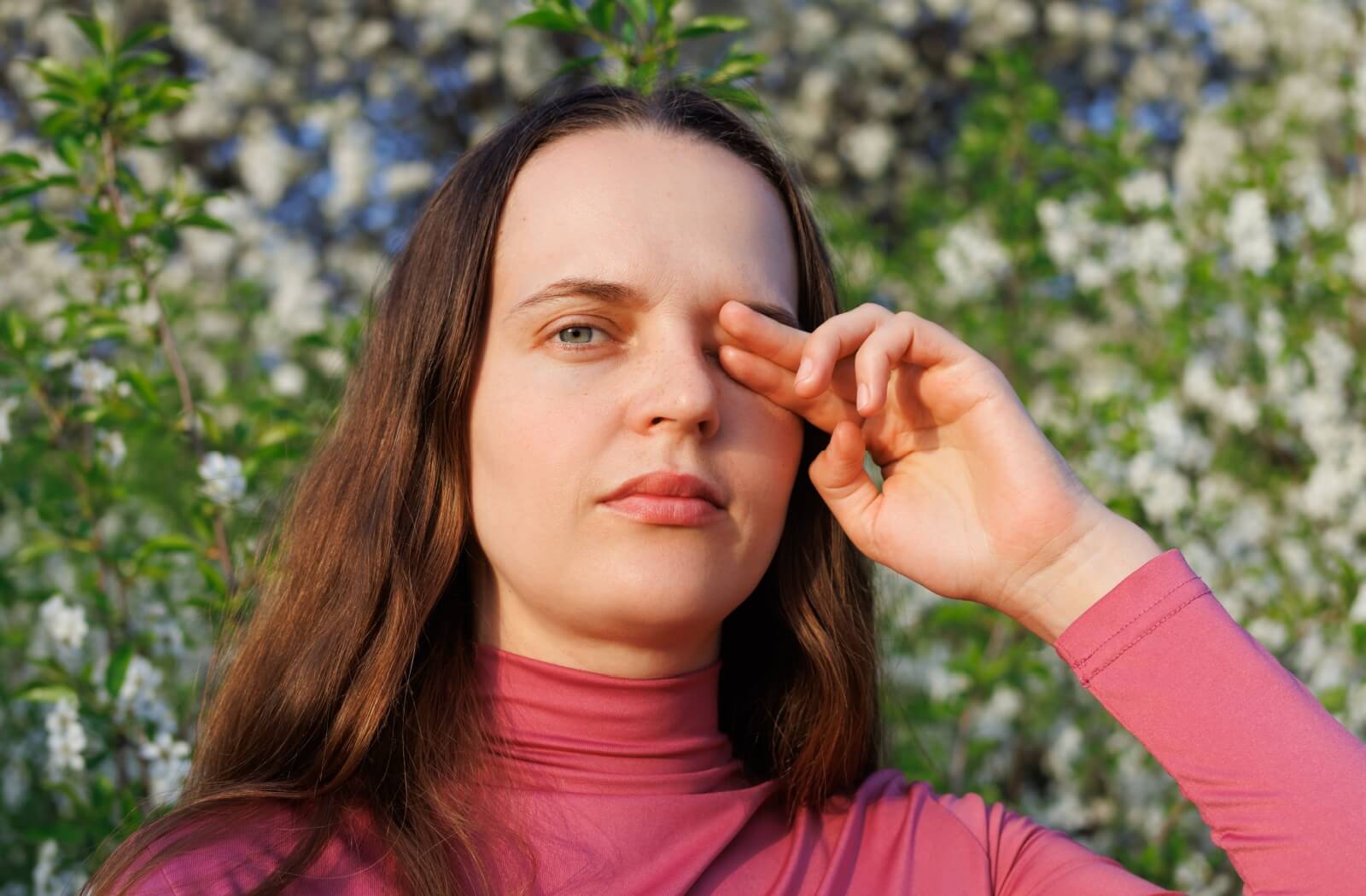Have your eyes ever felt uncomfortable in the morning? Have you ever felt something in your eye when you know nothing is there? You might want to talk to an eye doctor about dry eye disease if you have.
Dry eye can be painful and irritating. If you use contact lenses, it could increase your risk of eye infection. It’s important to understand what can cause dry eye, how you can prevent it, and treatment options to help bring comfort and relief.
What is Dry Eye Disease?
Dry eye disease is a common eye condition that affects tear production and quality. Healthy tears protect your eyes from foreign substances like dirt and dust particles. They also keep your eye surface clear so you can see correctly.
When you don’t have enough tears, or when they’re lower-quality, you may experience symptoms of dry eye disease. Some common symptoms of dry eye disease include:
- Stinging sensation
- Eye redness
- Light sensitivity
- Blurry vision
- Watery eyes
- Gritty feeling
Dry eye can be uncomfortable and sometimes painful. Some people produce more tears in response to dry eye. This might be confusing since tears should help lubricate your eyes. However, the tears produced in response to dry eye are mostly water. They don’t contain the vital chemicals to help protect your eyes.
In some severe cases, dry eye can increase your risk of infection since your eyes are less protected. Dryness can also increase your risk of scratching the eye surface.
What Causes Dry Eye Disease?
There are a few causes of dry eye, ranging from environmental factors to aging to your lifestyle. It’s essential to know the causes of dry eye disease so you can identify them in your own life and check on your risk levels.
Aging
Your eyes may start showing signs of aging beginning in your mid-40s. These signs can include symptoms of dry eye. Reduced tear production is a natural part of the aging process as your lacrimal glands cannot produce as many tears as when you were younger.
Allergies
Seasonal allergies like hay fever and ragweed can cause itchiness and irritation. Rubbing your eyes can cause rapid tear evaporation, causing redness, dryness, and inflammation.
Smoking
Smoking can cause severe complications for your eye health. Cigarette smoke contains many chemicals and can aggravate dry eye symptoms. These chemicals break down the quality of your tears, leaving your eyes unprotected and increasing your risk of eye infection. The smoke itself can also lead to more rapid tear evaporation.
Home Environment
Your home environment can significantly impact your risk of developing dry eye. If you sleep next to a blowing air conditioner or your living space is too dry, your tears may evaporate too quickly. Rapid evaporation can leave your eyes dry and irritated.
Screen Use
We spend a lot of time on screens. Whether it’s your laptop, tablet, or phone, your eyes constantly focus on small text and images. When we use screens, we tend to blink less often. Less blinking means a lack of moisture reaching your eye surface, causing dry eye. Screen use can also lead to digital eye strain and more frequent headaches.
Dehydration
Water helps your body produce tears. When you’re dehydrated, you don’t produce as many tears. Keeping yourself hydrated isn’t only a part of your eye health. Hydration is essential to maintaining your overall well-being, like maintaining clear skin, promoting good kidney function, and reducing disease by getting rid of waste.
Meibomian Gland Dysfunction
Meibomian glands produce an oil called meibum. Meibum is an essential ingredient in your tears and helps ensure your tears are of high quality. Meibomian gland dysfunction causes inflammation, leading to a blockage that stops the meibum from joining the tear film. Your tears evaporate more quickly without the oil, leading to dry eye.
Blepharitis
Blepharitis is an inflammation of the eyelids. It can cause your eyelids to become red, dry, and puffy. When your eyelids are dry, skin can become flaky and build up in your tear film, which can cause irritation and dry eye symptoms.
How Can I Prevent Dry Eye?
Preventing dry eye can start with understanding your environment. Windy places, like the countryside, for example, are drier. This constant exposure to wind can cause your tears to evaporate more quickly. You can adjust your home environment to prevent dry eye by adding a humidifier. You can also avoid direct air from an air conditioner or fan when sleeping.
You can also prevent dry eye by staying hydrated and drinking 6-8 glasses of water daily. If you smoke, you might consider quitting since your risk of developing dry eye is higher than non-smokers.
Getting a regular eye exam from your eye doctor can also help you prevent dry eye or catch the symptoms first so your doctor can work with you to create a treatment plan.
How is Dry Eye Treated?
Dry eye treatment depends on the cause of your condition. Your eye doctor can work with you to develop a treatment plan. In some cases, the same measures you use to prevent dry eye, like adding a humidifier to your space or staying hydrated, can help treat dry eye.
Your eye doctor may recommend a warm compress over your eyes to stimulate your tear ducts in milder cases. Eye drops and artificial are also helpful because they add lubrication to your eye surface.
Every case of dry eye is different, and every patient’s dry eye therapy is unique. Getting an accurate diagnosis is critical to developing your personalized treatment plan, and seeing your eye doctor can help maintain your long-term eye health for years to come.


